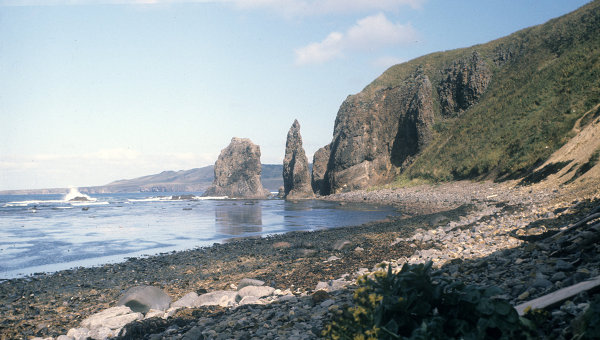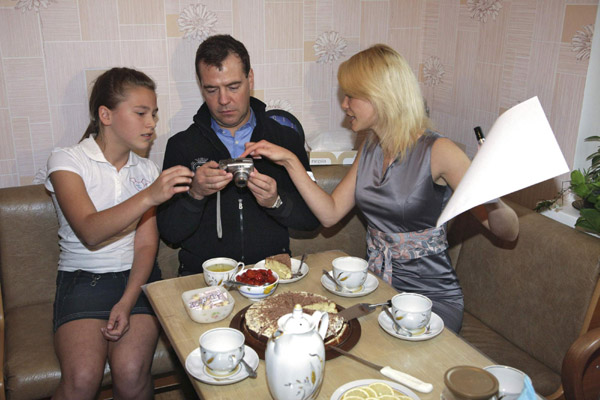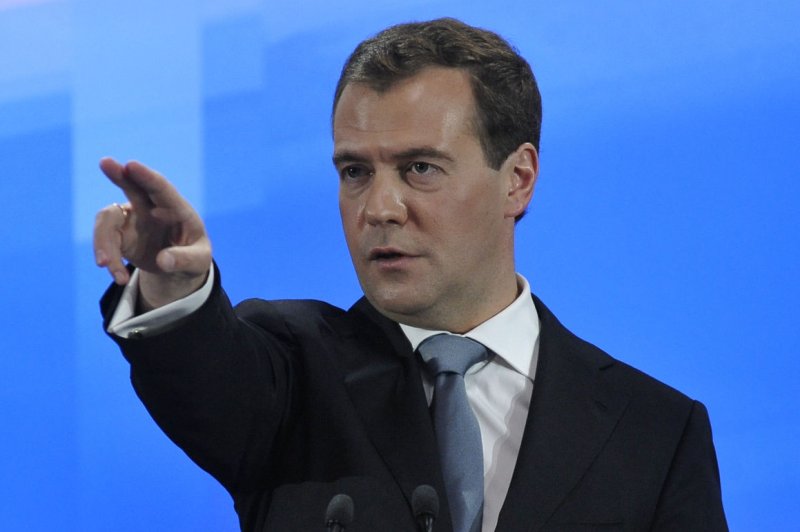|
|
Post by Admin on May 20, 2015 4:14:09 GMT
Minister of Foreign Affairs of the Russian Federation Sergey Lavrov said that Japan is the only country that does not recognize the results of the Second World War, in particular disputing Kuril Islands. This Lavrov said on Tuesday, May 19 in an interview to "Rossiyskaya Gazeta".  The minister recalled that after the Second World War, the whole chain of the Kuril Islands became part of the Soviet Union. However, Japan is currently disputed ownership of islands of Iturup, Kunashir, Shikotan and the Habomai group of islands. "We always ask the Japanese:" Lord, you are the results of the Second World War acknowledge? "They answer:" In general, yes, but on this issue - no. " And how do you then have ratified the UN Charter? There is an article 107, which states that everything that made the victorious powers, sacred and inviolable. Let other words, but the meaning is legal - do not touch me "- so Lavrov described the essence of the dispute over the Kuril Islands between Japan and Russia.  In the course of any negotiations with Japan on the issue of the South Kuriles Russia will always return to the Land of the Rising Sun with the UN Charter ", and here they do protest can not, and we can say that Japan - the only country that calls into question the outcome of the Second World War, no one else does not "- said Lavrov. Japan claims to the Southern Kurils, or as they are called in Japan - the "Northern Territories", referring to the bilateral trade and Treatise on the borders of 1855. This treaty - one of the first international treaty of Japan and consists in completely different geopolitical reality. Thereafter, Japan and Russia fought each other twice and the Kurils went to the Soviet Union as the winner in the Second World War. Japan also signed an unconditional surrender and was occupied by US troops. After the end of World War II peace treaty between Japan and the Soviet Union was never signed. The Japanese link the signing of a peace treaty with the transfer of the Southern Kuriles. In 1956, Moscow was ready to make concessions to Japan, and in the case of the signing of the peace treaty considered the transfer of several islands, but Japan has disrupted the talks and demanded transfer of all the Southern Kuriles. The Southern Kuril Islands are an important strategic area, since that is where there are only ice-free corridors leading out of the Sea of Okhotsk to the Pacific Ocean. In case of transfer of the Southern Kuriles to Japan the Russian Pacific Fleet will actually locked between the waters of Japan and Okhotsk seas in winter. Also the South Kuriles have offshore oil and gas fields.  |
|
|
|
Post by Admin on May 21, 2015 20:52:03 GMT
Tokyo has signaled it would like Vladimir Putin to finally resolve a territorial dispute and sign a peace treaty 70 years after the end of World War II. The Kremlin said it would welcome dialogue. Moscow is willing to restart peaceful dialogue with Tokyo to finally sign a WWII peace treaty, but Russian FM Sergey Lavrov said that claiming sovereignty over Kuril Islands makes Japan the only country that questions the results of WWII. Masahiko Komura, the current vice president of the ruling Liberal Democratic Party of Japan and a former foreign minister, met in Tokyo with the Chairman of the Russian State Duma, Sergey Naryshkin, on Wednesday. “We would like to sign a peace treaty having the territorial problem solved. For this we would like President Putin to come to Japan,” said Komura, adding that Prime Minister Shinzo Abe is “very seriously considering” inviting him. “Just like before, we absolutely welcome the constructive attitude of various political parties and forces of Japan to restart peace negotiations with Russia,” said the Russian president’s press secretary, Dmitry Peskov.  Peskov also said that at the moment “there is no news regarding the issue” of President Vladimir Putin’s possible visit to Japan. Japan’s Foreign Ministry announced plans to organize a visit by the Russian president by the end of this year. A previous visit, scheduled for autumn 2014, was disrupted due to Tokyo’s support for the American-led anti-Russian diplomatic campaign. Japanese diplomats also revealed that in April PM Shinzo Abe made US President Barack Obama aware of the Russian leader’s possible visit. The Kremlin has welcomed Tokyo’s openness to renewing the dialogue and would certainly consider Japan’s invitation for Putin to visit, Peskov said. On Tuesday, commenting on the disputed island issue, Lavrov said Japan was the only country that questioned the outcome of WWII. “We always ask the Japanese: Dear gentlemen, do you recognize the results of WWII? They answer: "Yes, we do – but not in this particular issue,” Lavrov said, demanding how in this case could Tokyo possibly ratify the UN Statute. Despite all the odds, investment and trade between the countries had been constantly developing until Tokyo joined the US-led anti-Russian sanctions in September 2014 over Moscow’s alleged involvement in the Ukraine crisis. Japanese sanctions against Russia targeted leading arms exporters and limited operations with five Russian top banks, including Sberbank ,VTB, Gazprombank, Rosselkhozbank and VEB (Vnesheconombank). The issue of the southern Kuril Islands should also be considered in the light of the decision of a UN maritime commission in March 2014, which confirmed that 52,000 square kilometers in the middle of the Sea of Okhotsk in the Far East is now Russian continental shelf. |
|
|
|
Post by Admin on May 25, 2015 20:50:47 GMT
After his visit to Japan the Russian State Duma Speaker Naryshkin noted that the status of the South Kuril Islands is “always present on the agenda of meetings” between Tokyo and Moscow. Naryshkin added that considering the Kuril Islands as “pretext for Russian territorial claims” than the issue will only become an irritant and obstacle to developing cooperation in other spheres. Naryshkin added that Russia is always willing to discuss sensitive issues, even a peace treaty with Japan, provided that it would be done with mutual respect.  Russia occupied the South Kuril Islands and, for all practical intends and purposes annexed the Islands in the same fashion in which large swaps of Germany were annexed by Poland and Russia after WW II. Moscow’s openness to discuss “sensitive issues, even a peace treaty brings to mind that Germany still has no peace treaty either”; A fact that prevents Germans from voting about a constitution and a fact that maintains the de-facto subjugation of Germany to Washington and London / NATO.  Japanese – Russian relations could, arguably, become far more positive if Russia took the initiative to actually level the playing field by actively taking steps to finally remove the enemy state clause from the Charter of the United Nations. The resistance against US bases in Japan is growing, and Moscow would, arguably, commit a strategic blunder by not assuring that Japan regains its full sovereignty as UN member. The move would, definitely, also improve Russian – German relations and weaken Washington’s and London’s sway over Germany and, by implication, over the EU. Arguably, any one of the permanent members of the UN Security Council who took it upon themselves to carve the world up in hegemonic zones will have the advantage by gaining the sympathy, trust and cooperation of those States that, 70 years after WW II, still face the threat of being attacked or occupied in the case of a real or fabricated threat, without a declaration of war. |
|
|
|
Post by Admin on Aug 27, 2015 20:25:17 GMT
 Russian Prime Minister Dmitry Medvedev announced plans to visit the Kuril Islands, a handful of islands disputed with Japan since the 1940s. Russia calls the four islands Southern Kurils. They are located in the Sea of Okhotsk. All were given to Soviet forces at the end of World War II but are still claimed by Japan. Russia had repeatedly offered to return the Asian country two minor islands, but Japan has claimed the entire territory.  "Those who have been [to the Kuril Islands] should go there. In any case, I plan to go and see how things stand there. And I invite others to there as well," Medvedev told a government session Thursday, as reported by Russia Beyond the Headlines. In November 2010, then-President Medvedev visited the Kuril Islands for the first time -- the first Russian leader to do so. While there, Medvedev visited constructed sites and talked to the residents, while also inspecting a geothermal plant. In July 2012, Medvedev also flew to the southern island of Kunashir.  Russia and Japan have no formal peace treaty signed. In February 1946, the Kuril Islands were declared as territories of the Soviet Union. "We can consider the issue of creating advanced development territories in the Kurils, of course, depending on what projects surface. the purpose of the new program is to improve the living conditions on the islands, as much as possible, in order to attract people to the region, to ensure those who already live there with jobs, and provide all the necessary social infrastructure such as kindergartens, schools, medical facilities," Medvedev said, as reported by TASS. |
|
|
|
Post by Admin on Sept 3, 2015 20:26:06 GMT
 Moscow is ready to resume negotiations with Tokyo on the issue of a peace treaty, but the dialogue on the Kuril Islands, it does not and does not intend to conduct, said Russian Deputy Foreign Minister Igor Morgulov. "This issue has been resolved 70 years ago - the Southern Kuriles came to us legally at the end of the Second World War, the sovereignty and jurisdiction over them Russia can not be questioned," - said Morgulov. The Russian side, according to the diplomat, is ready for "constructive continuation of negotiations on a peace treaty." At the same time, "efforts to find a mutually acceptable solution to this problem must be taken by both sides coupled with broad onward advancement of Russian-Japanese cooperation in all areas", "Interfax" reports the words of the deputy minister. Now continuing the pause between Moscow and Tokyo in the consultations at the level of deputy foreign ministers was formed on the initiative of the Japanese side, said Morgulov. According to him, Japan, by joining the anti-Russian sanctions policy of the West, went to the folding of many interactive formats. |
|










